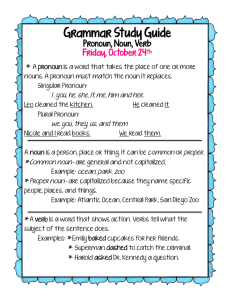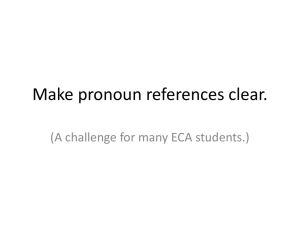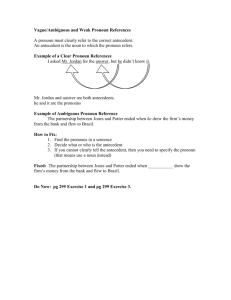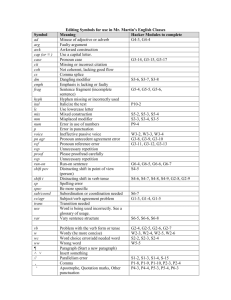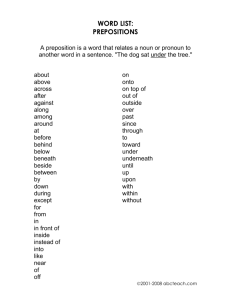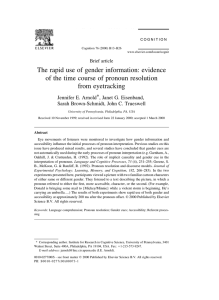Pronoun Reference
advertisement
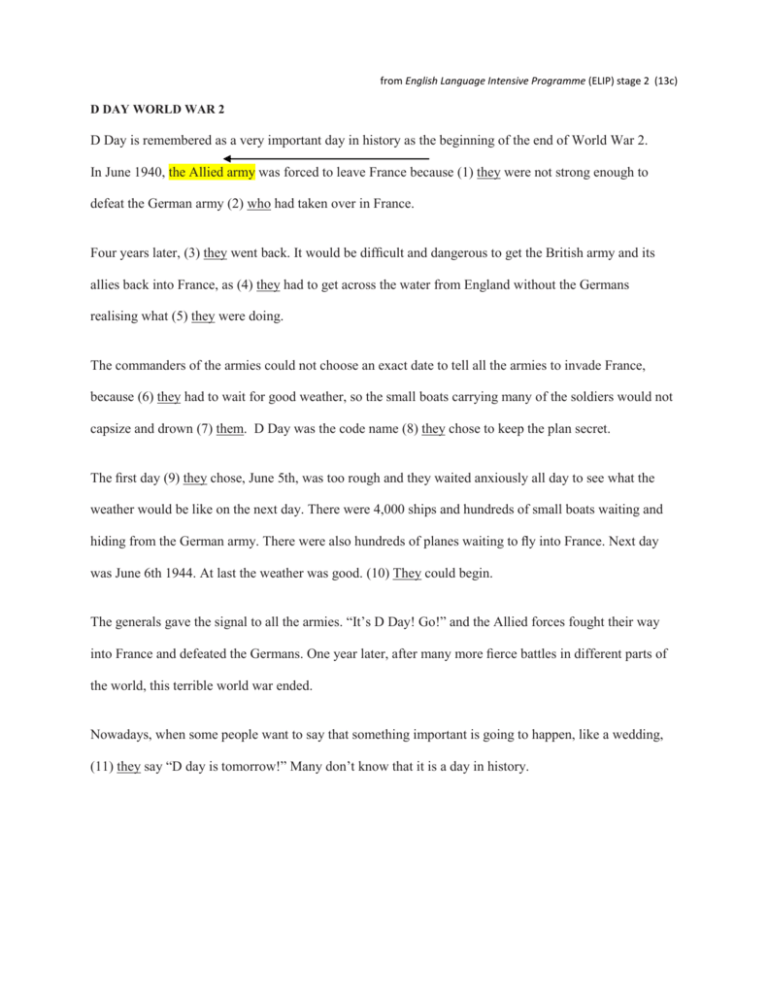
from English Language Intensive Programme (ELIP) stage 2 (13c) D DAY WORLD WAR 2 D Day is remembered as a very important day in history as the beginning of the end of World War 2. In June 1940, the Allied army was forced to leave France because (1) they were not strong enough to defeat the German army (2) who had taken over in France. Four years later, (3) they went back. It would be difficult and dangerous to get the British army and its allies back into France, as (4) they had to get across the water from England without the Germans realising what (5) they were doing. The commanders of the armies could not choose an exact date to tell all the armies to invade France, because (6) they had to wait for good weather, so the small boats carrying many of the soldiers would not capsize and drown (7) them. D Day was the code name (8) they chose to keep the plan secret. The first day (9) they chose, June 5th, was too rough and they waited anxiously all day to see what the weather would be like on the next day. There were 4,000 ships and hundreds of small boats waiting and hiding from the German army. There were also hundreds of planes waiting to fly into France. Next day was June 6th 1944. At last the weather was good. (10) They could begin. The generals gave the signal to all the armies. “It’s D Day! Go!” and the Allied forces fought their way into France and defeated the Germans. One year later, after many more fierce battles in different parts of the world, this terrible world war ended. Nowadays, when some people want to say that something important is going to happen, like a wedding, (11) they say “D day is tomorrow!” Many don’t know that it is a day in history. from English Language Intensive Programme (ELIP) stage 2 (13c) Complete the table below to show which nouns or noun phrases each pronoun stands for or refers back to (the referent of the pronoun / pronoun referent) in the text. The first one has been done for you. pronoun pronoun referent 1 they the Allied army 2 who 3 they 4 they 5 they 6 they 7 them 8 they 9 they 10 they 11 they from English Language Intensive Programme (ELIP) stage 2 (13c)
